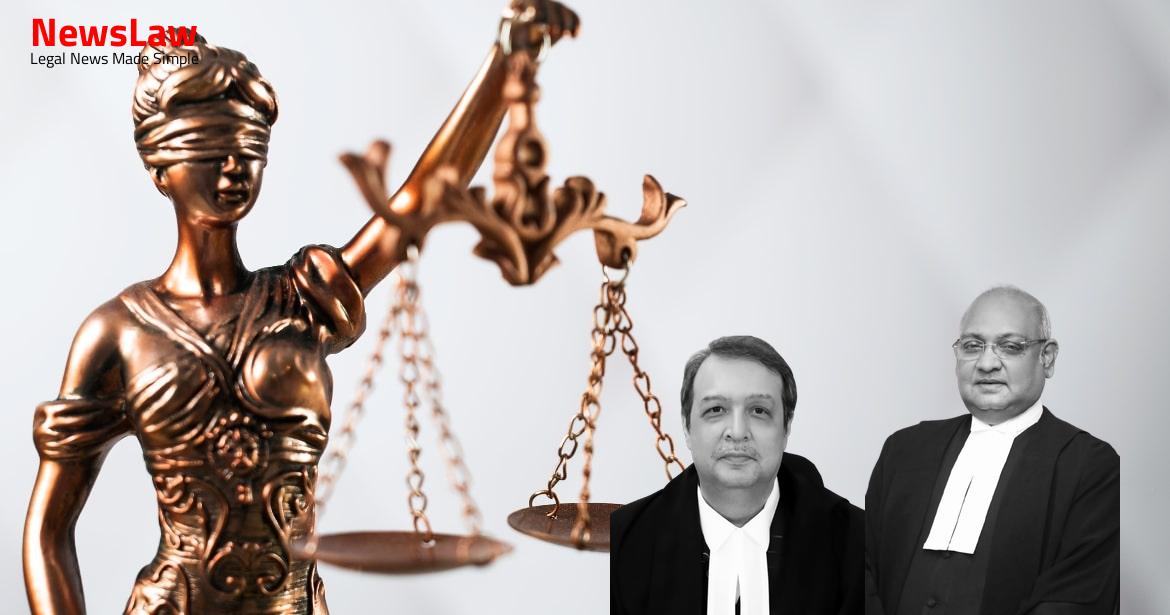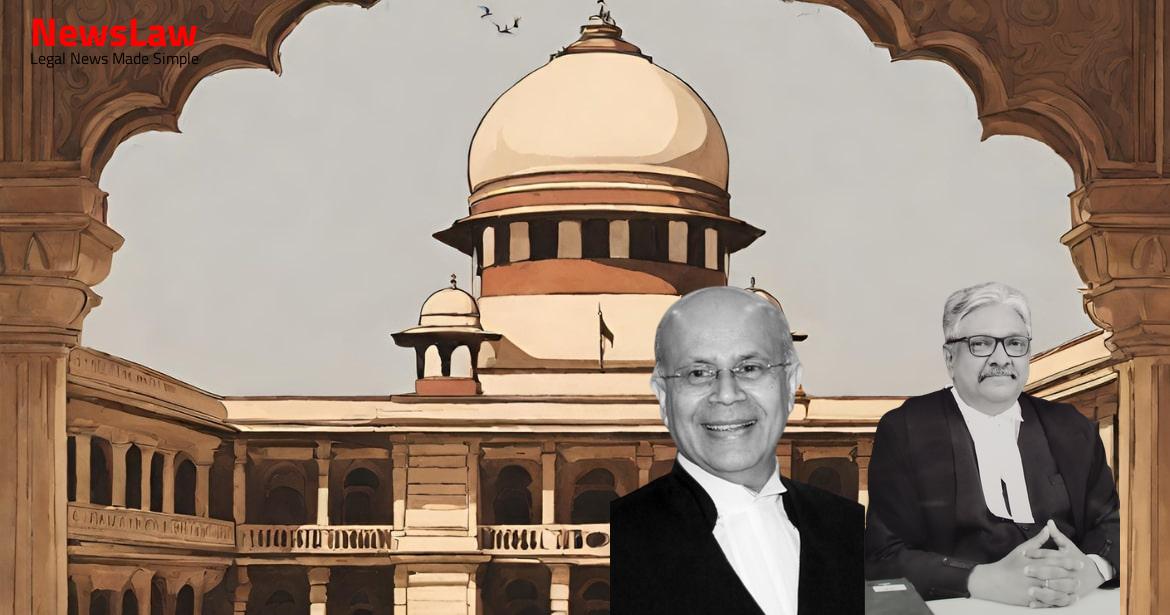In the case of Appellants vs. State, the High Court rejected the anticipatory bail application filed by the appellants. Despite the ongoing legal proceedings and non-bailable warrants issued against them, the appellants have failed to appear before the Trial Court. Stay tuned for more insights on this developing legal situation.
Facts
- Appellants unsuccessfully challenged the cancellation of bail in Criminal Revision Petition No.94 of 2022.
- Trial Court issued non-bailable warrants and a proclamation under Section 82(1) Cr. PC due to their absence.
- Appellants filed an anticipatory bail application before the High Court, which was later dismissed.
- Complainant applied for the cancellation of bail granted to the appellants, and show cause notices were issued.
- Despite developments, appellants did not appear before the Trial Court or seek regular bail.
- Appellants withdrew a bail-cum-surrender application out of fear of arrest before a Trial Court appearance date.
- A pre-arrest bail application was moved in connection with FIR No.79 of 2020 against the appellants.
- High Court dismissed the appellants’ application for anticipatory bail in CRLM No.67668 of 2022.
Also Read: Assessment of Compensation in Multi-Income Source Fatality Case
Arguments
- The present appellant was declared as an “absconder” and not available for interrogation and investigation.
- When accused is declared as a “proclaimed offender” and “absconding”, anticipatory bail is typically not granted.
- The core contention of the appellants is that rejecting the anticipatory bail application solely based on the issuance of proclamation under Section 82, Cr. PC, is unsustainable.
- The argument raised is that even if a non-bailable warrant is pending, an application for anticipatory bail should be considered on its own merits without being dismissed.
- The appellants were not evading arrest or absconding but were exercising their legal right to seek anticipatory bail.
- Non-bailable warrants and initiation of proceedings under Section 82, Cr.PC are justiciable without interim protection.
- No legal obstacle for issuing non-bailable warrants or initiating proceedings under Section 82, Cr.PC in the absence of interim protection.
- Subordinate Courts typically wait for orders from the High Court in cases of pending applications for anticipatory bail.
- The existence of pending applications for anticipatory bail disentitles a person from pressing for pre-arrest bail.
- Even if an application for anticipatory bail is pending, it may not be maintainable.
- Arrest should be the last option and restricted to cases where it is imperative in the facts and circumstances of the case.
- The grant of anticipatory bail is restricted to exceptional circumstances.
- The power to grant anticipatory bail under Section 438, Cr.PC is exceptional and should be used sparingly.
- Counsel for the State vehemently opposed the propositions put forth by the appellants.
Also Read: Analysis of False Promise to Marry in Rape Case
Analysis
- When a person against whom a warrant has been issued and is absconding or concealing himself to avoid execution of the warrant, declared as a proclaimed offender in terms of Section 82 of the Code, he is not entitled to the relief of anticipatory bail.
- If anyone is declared as an absconder/proclaimed offender under Section 82 Cr.PC., they are not entitled to the relief of anticipatory bail.
- The power under Section 438 of the Code is to be exercised only in exceptional cases where there are reasonable grounds to believe the person may be falsely implicated or where it is unlikely that the accused will misuse their liberty.
- In cases where an accused has a pending non-bailable warrant and the process of proclamation under Sections 82/83 Cr.PC is initiated, the accused is not entitled to anticipatory bail.
- There is no statutory inhibition for arrest in such cases.
- Filing an Anticipatory Bail Application cannot be considered as the appearance of the accused in a competent Court in proceedings initiated under Sections 82/83 of the Code; physical appearance before the Court is crucial.
- When a Court grants anticipatory bail, it orders for the release on bail upon arrest, subject to terms and conditions.
- Appellants were consistently defying the orders of the trial court and moving applications for bail instead of appearing before the court.
- Issuance of bailable warrants and subsequently non-bailable warrants against the appellants due to their non-compliance.
- Application for anticipatory bail filed by the appellants before the High Court was rejected on 04.04.2023.
- Proclamation under Section 82, Cr.PC was issued against the appellants on 04.01.2023.
- The appellants did not challenge the issuance of proclamation or take any steps to comply with the court’s orders.
- The court can proceed with steps for proclamation and under Section 83, Cr.PC even in the absence of an interim order for anticipatory bail.
- Section 82(1) of the Criminal Procedure Code mentions the term ‘reason to believe’.
- This term implies that the Magistrate must have a subjective satisfaction that the person in question has absconded or concealed themselves.
- The purpose of this provision is to prevent harassment or humiliation of individuals based on personal grudges or vendettas.
- High Court’s rejection of application for anticipatory bail is upheld.
- The appellants’ conduct shows they are not entitled to pre-arrest bail.
- Appellants defied lawful orders of the Court and attempted to delay proceedings.
- The appeal is dismissed due to appellants’ actions.
Also Read: Legal Analysis of Will Dispute
Decision
- Accused, other than the appellants, appeared in court and applied for regular bail.
- The Trial Court granted regular bail to the accused who appeared.
- The matter was posted for the appearance of the appellants on 11.10.2022.
Case Title: SRIKANT UPADHYAY Vs. THE STATE OF BIHAR (2024 INSC 202)
Case Number: Crl.A. No.-001552-001552 / 2024



